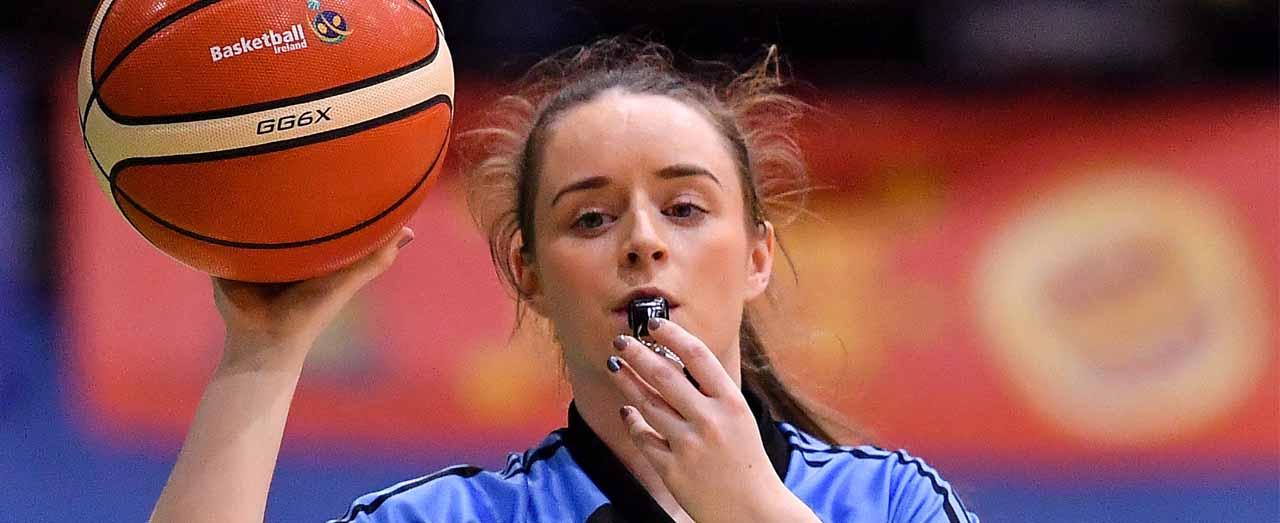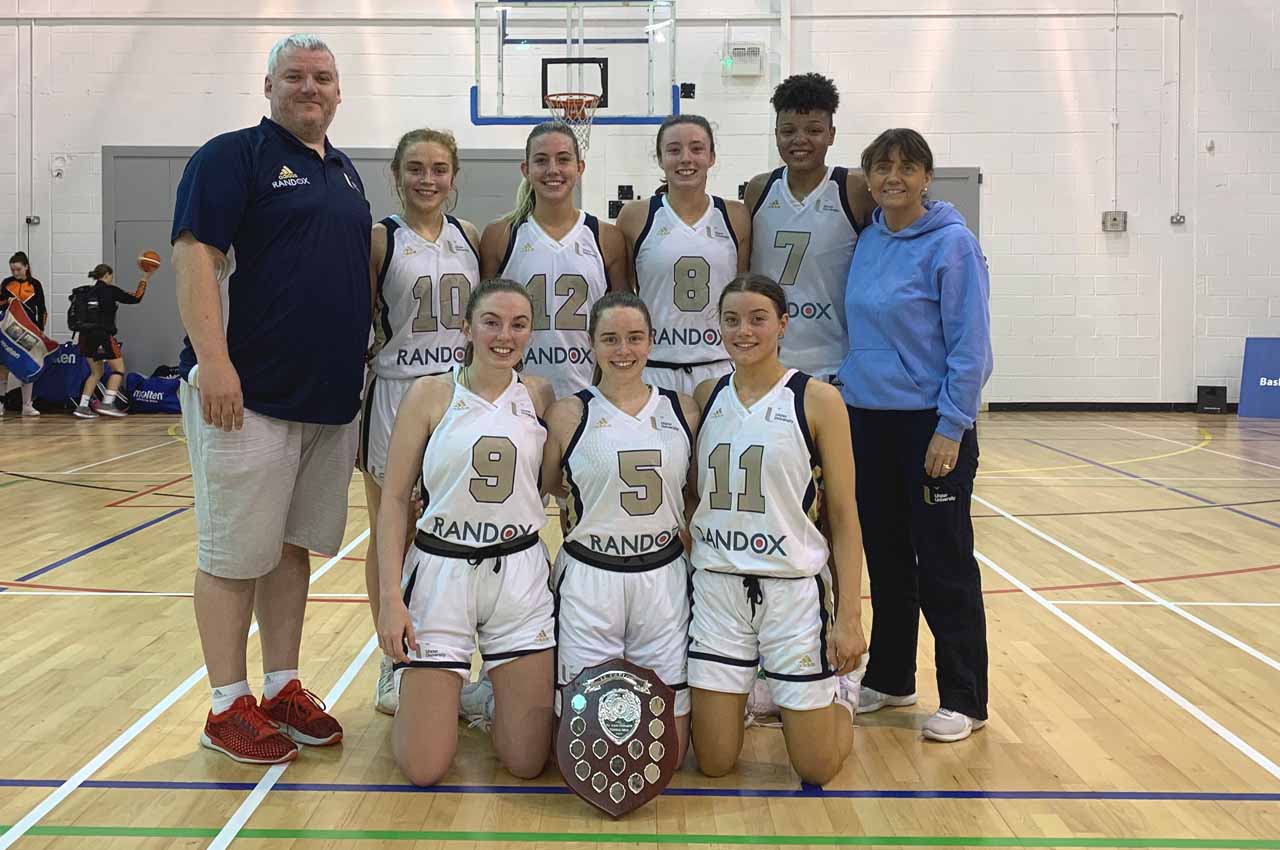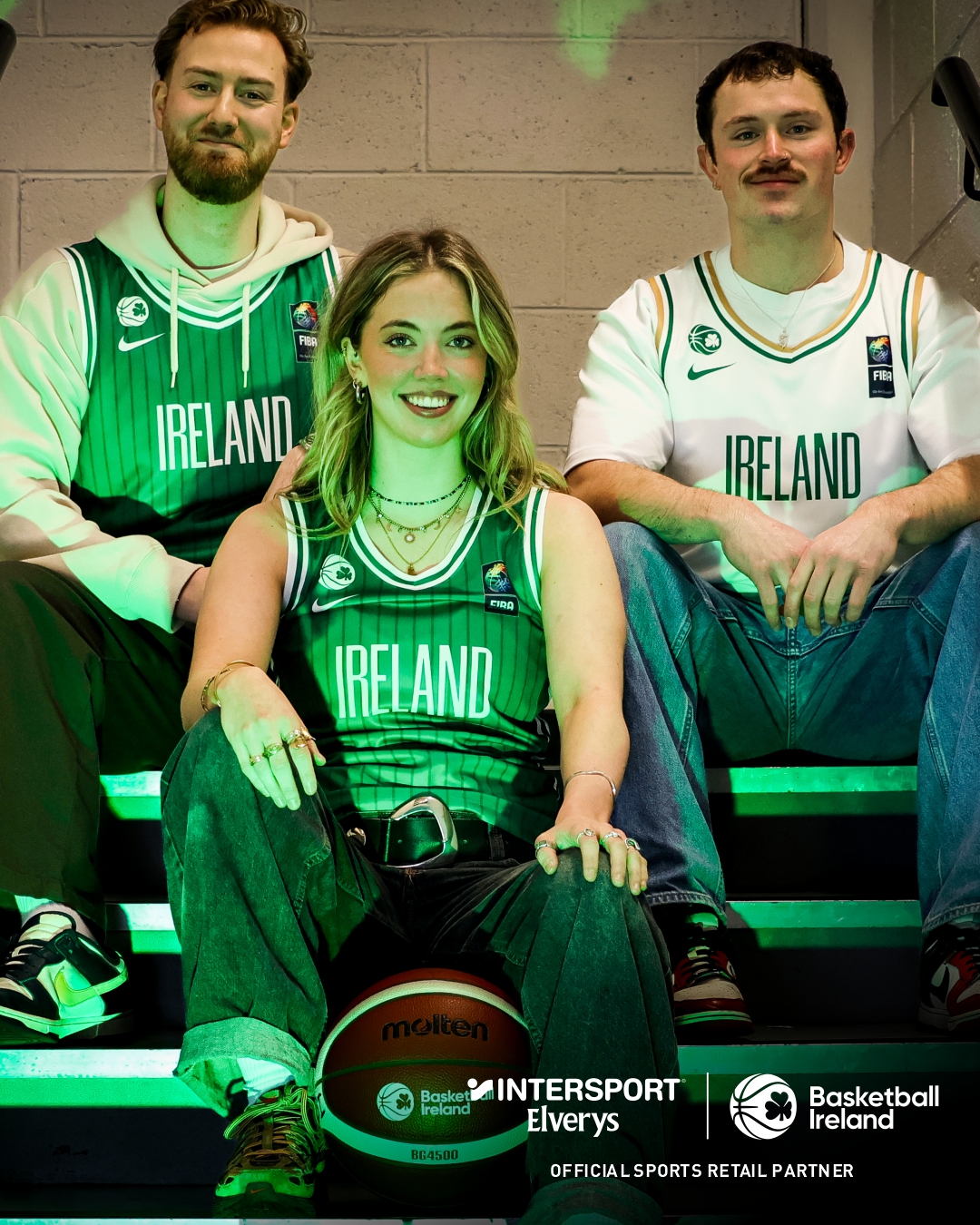Niamh Callaghan

Referee Level: Super League, Local League (Northern Ireland)
Interview
"When you begin refereeing at the highest standard of basketball in Ireland, the expectations are high for everyone involved. My referee coach at the time was David Smith and he gave me some great advice that I still carry with me today-"the only difference between you and more experienced officials is the number of mistakes they have made. Mistakes are a central aspect of learning, so don’t fear mistakes, accept that they will happen and learn from them."
Can you talk us through your playing background?
Basketball has always been a very important aspect of my life from an early age. My mum was an excellent basketball player and my dad dabbled in playing and then really found his niche in refereeing, so I have always been immersed in the sport. I initially started playing when I was very young, around 4/5 years old. In 2005, my parents created a club called Andersonstown Tigers where my myself, my sister Aoife and brother Odhran all really began our playing careers. In 2013-2014, I gained a scholarship to study in America for one year and during this time I also played D3 basketball. This was a truly unforgettable playing experience for me, the American style of basketball is so different to playing here in Ireland. It forced me to become an adaptable player and the experience helped me become a more well-rounded athlete. Once I returned from America, I played National League with Ulster Rockets for a season and continued to play local league basketball. Unfortunately, due to several knee injuries throughout my playing career I decided to retire from playing in 2016.
How did you get involved in refereeing?
I initially qualified as a referee in 2009, but I was still very active and focused on playing basketball so I never really got involved in refereeing until much later. My father, John Hegarty, was the person who initially got me out on to the basketball court as a referee and ignited my passion for refereeing.
What kind of games have you refereed over the years?
Over the past 3 years I have been refereeing in the MSL which I throughly enjoy. I have been very lucky to be given the opportunity to referee at both the National Cup Semi-Finals and Finals throughout the last 3 years also. My greatest achievements to date have been selected to referee the WSL National Cup Finals in 2019 and 2020. The 2020 National Cup final was a very special year as it was an all female crew refereeing the ladies Super League final and it was a great game which displayed the highly talented female athletes and officials that we have in this country.
Who would you say was a role model for you as a referee and why?
Honestly, there are so many amazing referees all over the country who I admire and learn from and that makes it quite difficult to select anyone in particular as a role model. However, I would say that my dad, John Hegarty and Emma Perry are two referees that I look to for inspiration and motivation in my refereeing career. From a young age, I travelled with my dad across Ireland on Saturday nights watching him referee in the MSL. I was always inspired by his love of the game and his desire to always keep bettering himself, those are two things that have always stuck with me and I try to carry across into the way I referee today. Secondly, Emma Perry, is another amazing referee whom I aspire to emulate. I can remember the first game I ever saw Emma refereeing in and I was immediately drawn in by her presence on the basketball court. She emulates confidence, class and calmness through her refereeing and I always throughly enjoy refereeing with Emma because you learn and absorb so much valuable information in every game you officiate with her.
What is the most important thing for you when refereeing younger/teenage boys and girls?
I think the most important thing to remember is that we as referees also have a responsibility to educate younger players. Our job is not simply to go onto the court and blow our whistles, we must also establish good communication with the players enabling them to play to the best of their ability and this also goes a long way in building respectful relationships between officials and players.
Have you any tips you'd like to share on keeping girls engaged in sport?
Bring your friends along with you, encourage them to participate in sport and make it another social get together!
Any tips you would like to give to young referees who are starting out?
Never, ever be afraid to ask questions and engage in conversations with other referees.
The refereeing community here in Ireland is quite small and therefore you will always find someone who us willing to help you and offer some advice. Becoming a good referee is all about experience, when you ask questions and speak to other more experienced officials you will begin to learn from their successes and mistakes and you will begin to to pick up on little tools and tips that will help you align in your refereeing career.

When you first stepped up to National League/International level, were you nervous about the step up and how did you deal with that if so?
Absolutely! I was very nervous and anxious taking my first step into the National League. When you begin refereeing at the highest standard of basketball in Ireland, the expectations are high for everyone involved. My referee coach at the time was David Smith and he gave me some great advice that I still carry with me today-"the only difference between you and more experienced officials is the number of mistakes they have made. Mistakes are a central aspect of learning, so don’t fear mistakes, accept that they will happen and learn from them."
What would you say to other female referees who are considering moving up a level in their refereeing careers?
Please do it and do not be afraid of taking that next step because you never know what you can do until you try!
How do you measure the success of a game?
In order to measure the success of a game, you must have established a success criterion which we as a crew determine in the pre-game. I measure the success of a game based upon consistency, if myself and the crew consistent in our application of the game criteria, our communication with players, coaches and table officials. Finally, I can tell that a game was successful if the crew walk away from the game feeling relaxed and enjoyed the experience, that is always a good sign that we have done our job well.
How do you measure success in broader terms?
I am a very visual person, I learn through seeing what I do well and what I need to improve upon. So, when it comes to measuring my success I set goals for myself and I track my progress diligently and that allows me to see how quickly I am progressing and identifies areas where I can push myself a little harder.
How important do you think it is for referees to keep learning and developing regardless of level of experience?
I think this is so important, once you stop learning you stop progressing.
Have you noticed many changes in Ireland in referees over the years? If so, what?
I believe that the biggest change in refereeing in recent years is the use of technology within the game through live streaming and to using sports analysis platforms to breakdown games and individual plays. This has been a great addition for officials as we are able to watch ourselves and identify areas of strength and weakness in our officiating.
What changes would you like to see in basketball refereeing in Ireland in the future?
I would like to see the perceptions of refereeing in Ireland beginning to change by seeing a greater increase in the number of younger officials refereeing in the National League. Refereeing isn’t something you can take up once you retire from playing. It will improve your knowledge and understanding of the game, it will provide you with a different set of challenges and you can be involved in games that you may not get to experience as a player.
What is the most valuable lesson you have learned as a player?
You don’t have to be the most talented player on the court, but you should always strive to be the hardest worker on the floor.
What is the most valuable lesson you have learned as a referee?
Control the controllable factors.
If you know referee who deserves to be recognised in this series, please send their details to Ronan at rsweeney@ireland.basketball.
Basketball Ireland have a homepage for your refereeing education and development requirements. This page contains all relevant FIBA documents along with training videos and additional material supplied by Basketball Ireland FIBA National Referee instructor, Paul Dempsey to aid your development/education. Click here to view the page.

